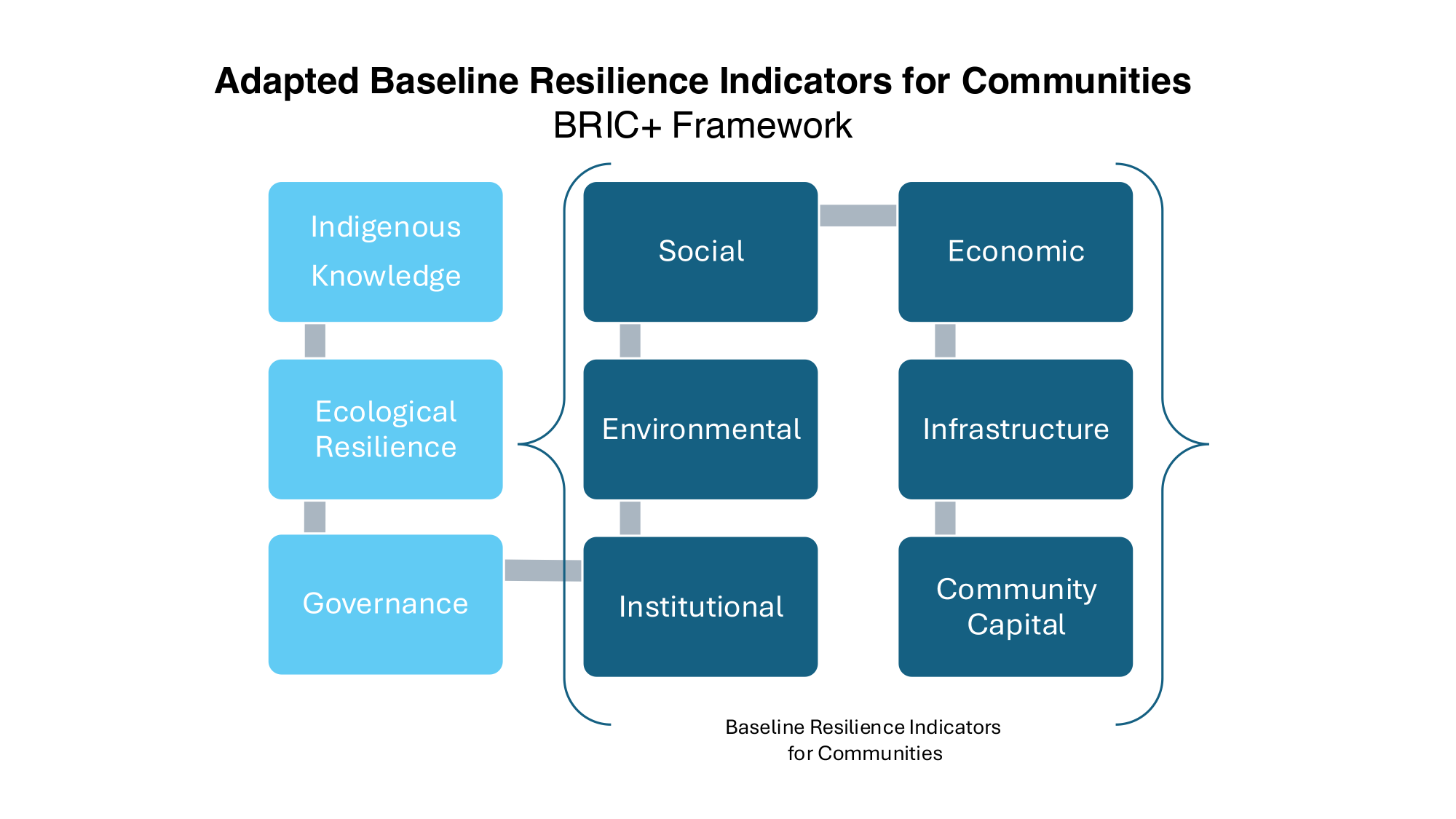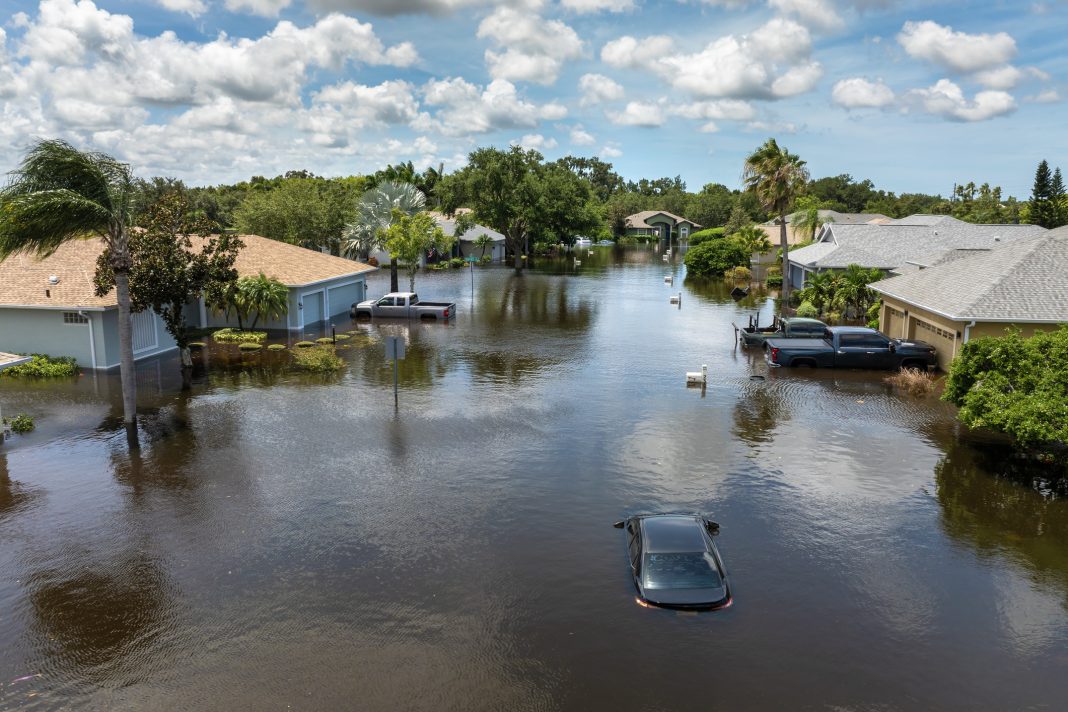Dr. Amanda Shankland, Dr. Carolyn Johns, and Gail Krantzberg, explore climate change resilience, water change, and the critical role of climate-ready communities
Climate change is impacting communities across the globe. For many communities, climate change manifests as water change in the form of floods, droughts, shoreline erosion, water quality degradation, water insecurity, and uncertainty.
According to the United Nations, 153 countries have territory and communities within at least one of the 286 transboundary rivers, lake basins, and 592 transboundary aquifer systems (UN Water 2024). Communities worldwide are grappling with water governance challenges induced by climate change – inherently local, complex, and transboundary.
The link between community resilience and improving water governance in communities facing climate change
As part of a new Global Centre for Climate Change and Transboundary Water, a team of researchers focuses on understanding the critical connection between community resilience and improving water governance in communities facing climate change.
The Climate Ready Communities and Transboundary Governance (CRTG) Cluster is a research team of social scientists focused on understanding and improving governance structures that foster climate change resilience in communities impacted by water-related challenges.
The cluster aims to generate new knowledge that helps communities address climate change impacts at multiple scales. It integrates social science, Indigenous knowledge, and hydroclimate science to develop robust governance models that support resilience across diverse communities.
The CRTG’s research is built on recognizing that climate change impacts related to water require comprehensive, multi-level, and multi-dimensional governance strategies. Our primary objective is to explore how governance models can be adapted to support climate change resilience, particularly at the community level. This is achieved by examining how climate science, local knowledge, and community-based frameworks are integrated into decision-making processes at multiple levels of governance.
The cluster works to understand what governance approaches best support community resilience and to identify how local, regional, and transboundary governance structures can be integrated and transformed to better govern water challenges in the face of changing climactic conditions.
CRTG’s critical research objectives
The CRTG’s research focuses on several critical objectives:
- We seek to understand the baseline conditions and factors at the community scale that are critical foundations related to the capacity of communities to adapt to climate change and become more climate-ready and resilient.
- We aim to identify and evaluate governance models promoting climate resilience related to water challenges. This involves understanding how governance systems at different scales incorporate both scientific and community-based knowledge.
- We aim to assess how community-based governance innovations can facilitate transitions toward resilience.
By examining factors such as economic-use dominance, social inequality, fragmented water management regimes, and low social capital, the cluster explores how these vulnerabilities can be overcome through more inclusive, equitable, and sustainable governance approaches. We emphasize the importance of resilience factors in governance models, such as ecosystem-centric values, incorporating Indigenous knowledge, and using natural infrastructure. These factors are crucial for building community adaptive capacity and ensuring sustainable water governance policies and practices.

Baseline Resilience Indicators for Communities (BRIC) framework
A key component of the cluster’s research is the Baseline Resilience Indicators for Communities (BRIC) framework, which has been applied in many countries and provides indicators designed to evaluate climate change resilience in communities. The CRTG team has modified this framework to incorporate additional indicators related to Indigenous knowledge, ecological resilience, and governance.
For example, Indigenous knowledge indicators consider the role of Indigenous community leaders, integration of Indigenous knowledge, and cultural values and significance of water. Ecological resilience factors include the presence of natural infrastructure, ecological monitoring, and integration of water quantity and quality data related to climate change. Governance-related indicators include… political will, engagement of diverse water users and stakeholders, interagency collaboration, and transparency in decision-making processes.
This adapted BRIC framework is being used to collect baseline research on the climate-readiness of different communities to respond to climate impacts, particularly concerning water governance challenges.
CRTG’s research span and future plans
The CRTG’s research spans various geographic contexts and governance levels. Several case studies in the Great Lakes region are being used to illustrate the application of this framework at the community level and the significance of community-based research approaches and methods in transboundary water regions. Using comprehensive baseline and community-focused research, learning is part of the research process and the foundation of co-developing knowledge and strategies with communities that align with their needs and priorities, ultimately contributing to more effective climate adaptation and water governance.
By focusing on insights from governance and policy innovations at the community scale that embrace the complexity and unique challenges facing each community, the team hopes to generate and share new knowledge about the common set of factors that relate to climate-ready and resilient governance at a variety of scales, from local to global.
Several members of the CRTG cluster and Global Centre are also conducting research examining governance approaches being used in other countries and transboundary water regions across the globe such as the Rio-Grande/Bravo. A central goal of the Global Centre is to conduct research that facilitates comparative analyses across different communities and scales, allowing for a deeper understanding of how water governance models can be adapted to climate change realities in local contexts while promoting broader governance changes in transboundary basins.
Looking ahead, the CRTG team has plans to present findings from the first year of this five-year research project at scholarly and practitioner conferences and publish them in various scholarly, practitioner, and community outlets.
By bridging social science, interdisciplinary insights, Indigenous knowledge, community expertise, and a focus on governance and policy innovations, the CRTG seeks to generate new knowledge that supports the development of governance and policy innovations that effectively and equitably address water-related challenges associated with climate change.



